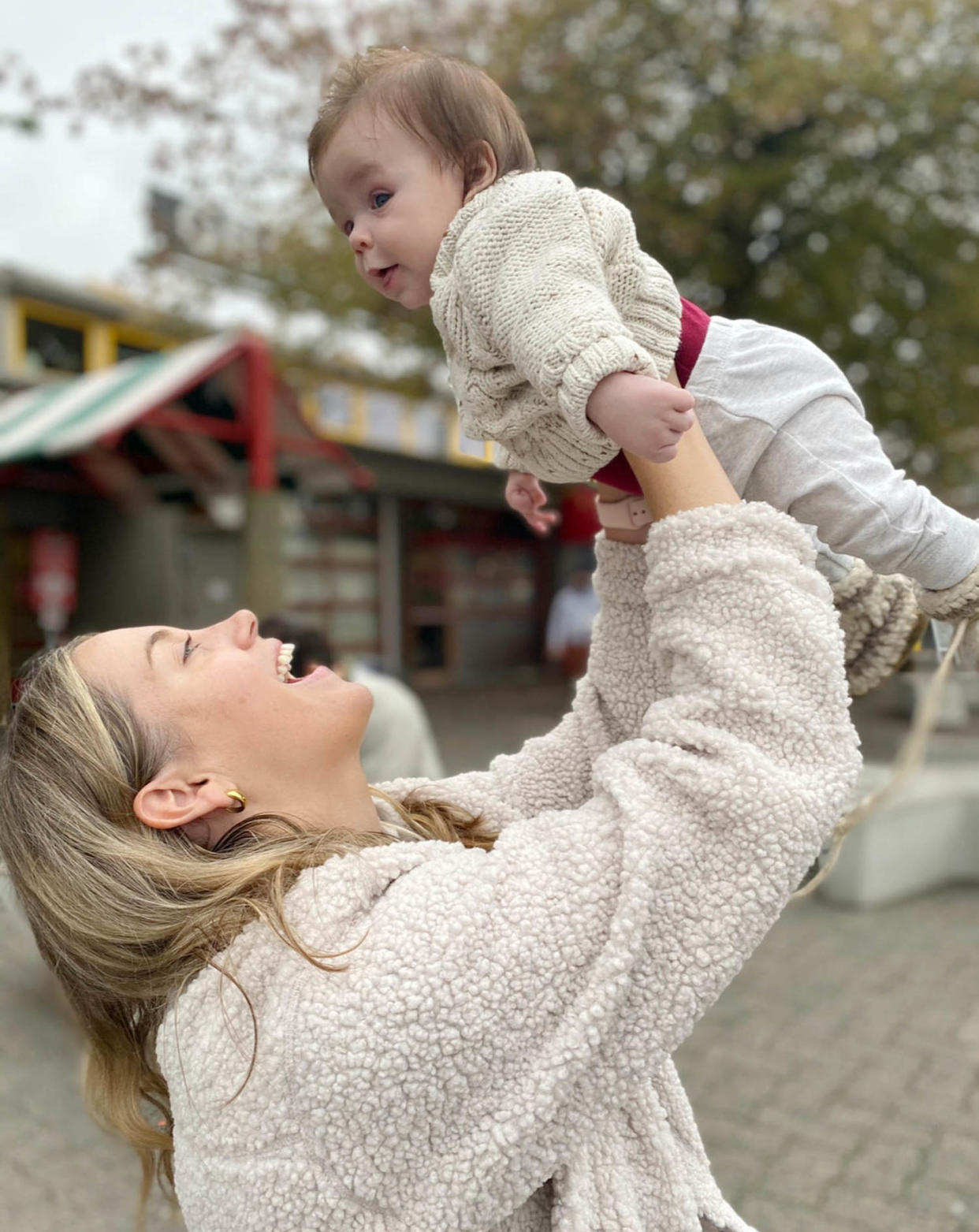Bradley Cooper didn't connect with his newborn baby. Me either, but I got shamed for it
Bradley Cooper recently made headlines when opening up about his struggle to connect with his daughter on Dax Shepard’s podcast, "Armchair Expert." I stopped when I got to this part: “The first eight months — I’m like, I don’t even know if I really love the kid.” As a mom who experienced postpartum depression, I also didn’t feel an instant bond with my son. I resonated with Cooper, but then I kept reading the transcription.
He continues with his brutally honest account of early fatherhood: “That’s my experience. Fascinated by it. Love taking care of it. But would I die if someone came in with a gun? It’s only been a couple of months … she could be an a--hole!” My mind went back to the monotonous days of caring for a newborn, a time when I felt intense shame for not feeling the profound love that many moms talked about. It wasn’t so much a love for my son that wasn’t immediate, but a love for the role of a mom — being wholly responsible for and endlessly needed by someone — that took time.
Many people shared their thoughts about Cooper’s comments on social media. “Bro is a little TOO honest,” one X user said. “Now this is a crazy thing to say,” said another.
To be fair, in the interview, Cooper went on to say that becoming a father has been an “anchor” for him and without his daughter, he’s “not sure if he’d be alive.” Many people celebrated his vulnerability on social media, with one Reddit user saying, “It’s really brave talking about stuff like that, I appreciate the honesty.”
While reading the various takes, I reflected on the criticism I faced when sharing about my struggles with motherhood. My first year as a new parent was filled with challenges — from an unplanned C-section to difficulties with breastfeeding and two episodes of postpartum depression. Writing about this experience has been profoundly healing for me, but it hasn’t always been well received.

I wrote a short piece that I shared on Instagram detailing hypothetical questions I wish I could ask another mom: Do the mundane tasks of motherhood bore her endlessly? Does she love her child so much it hurts but hates playing blocks with them? Does this all sometimes feel like a performance, but she’s forgotten who it’s for anymore? What would she give to be alone, just for one moment? It was reshared by an account with a large following and the comment section was a minefield of judgment. “Stop with the pity. You people act like having children is the worst thing in the world,” one commenter said.
My words made more strangers angry when I published a piece about how my struggles with breastfeeding made it challenging for me to connect with my son and contributed to postpartum depression. After existing in a cycle of shame and guilt, trying anything I could to make exclusive breastfeeding work, I ultimately made the decision to stop to protect my mental health. One commenter (with what appears to be a male username) said: “It’s not about what SHE wants to do. It’s about what’s best for the baby. If you’re not ready to put your wants on the back burner and do what’s best for your child, you’re not parent material.” “This is just so sad. This woman is not nearly ready to be a mother,” said another reader.
I have zero regrets about the stories I’ve shared and plan to continue to write compassionately and frankly about the sometimes-impossible task of motherhood. Without need for context, I offer the truth of my experience, and guns never find their way into my narrative. I can’t help but wonder how commenters would respond if I had been as brazen as Bradley. I also think about the female celebrities who have been mom-shamed for things that seemed, to me, far less concerning.
Hilary Duff was accused of child abuse when she shared a photo of her kissing her 4-year old son on the lips. Whether she was sitting too close to a microwave while pregnant or taking her kids to the zoo, Pink was trolled by mom-shamers so many times, she started clapping back at the “parenting police.” Sophie Turner was recently blasted for being a bad mom after her split from Joe Jonas. In a classic misogynistic narrative, Turner was painted as an absent mother while Jonas was portrayed as the good dad who stayed at home to care for the kids. It seemed to me that all Turner did was go out a few times and lean on her husband for child care while she was working — imagine if she publicly called one of her kids an “it.”
His choice of words aside, I don’t fault Cooper for being candid about how tough the transition to parenthood can be. I hope that fathers feel like they can be a part of this conversation. One comment on the Cooper drama highlighted the divide between mothers and fathers that I am grappling with here: “When babies are born, they mostly scream and drink milk. How would a man feel connected to the baby if the baby has no personality? The mommy is connected because of estrogen, and she is programmed that way.” Hormones do not make mothers superhumans invincible to struggle, personal needs or a desire for an identity beyond their child. My hope is that we allow more space for all moms to make mistakes, ignore the popular opinion, choose herself sometimes and admit that this job is anything but easy.''
This article was originally published on TODAY.com
